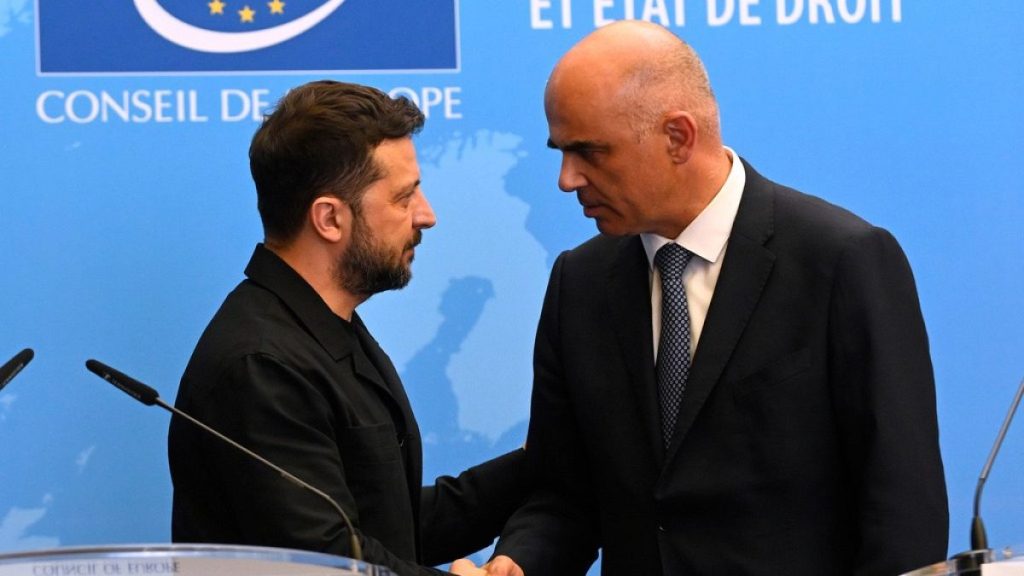In a significant development for international justice, Ukraine’s President Volodymyr Zelenskyy and the Secretary General of the Council of Europe, Alain Berset, have signed an agreement for the establishment of a Special Tribunal for the Crime of Aggression against Ukraine. This landmark agreement was formalized on a recent Wednesday in Strasbourg and aims to hold senior Russian officials accountable for alleged war crimes that have emerged since Russia’s aggressive invasion of Ukraine in February 2022. The tribunal is a direct response to the limitations of existing international courts, particularly regarding the prosecution of crimes classified as aggression under international law.
| Article Subheadings |
|---|
| 1) The Need for a Special Tribunal |
| 2) Historical Precedents and Their Significance |
| 3) Funding and Support for the Tribunal |
| 4) Logistics and Operational Challenges |
| 5) The Broader Implications for International Law |
The Need for a Special Tribunal
The recent establishment of the Special Tribunal signifies a crucial step towards addressing ongoing violations of international law. The tribunal’s creation comes amid widespread reports and allegations against Russian forces, ranging from war crimes to acts of aggression. Ukrainian officials argue that existing international institutions lack the jurisdiction and capability to hold Russian nationals accountable for these specific offenses. Reports indicate that the Special Tribunal is tailored to target the architects of aggression, aiming to bring justice to both Ukraine and the broader international community, which has been grappling with the consequences of Russia’s military actions since early 2022.
Historical Precedents and Their Significance
In this context, Volodymyr Zelenskyy has drawn parallels between the current situation and historical legal frameworks established after World War II. He emphasized the necessity for a dedicated tribunal akin to those set up post-war to prosecute Nazi war criminals, as well as the tribunal addressing the atrocities committed during the conflicts in the former Yugoslavia.
“The world needs an honest, historic verdict, so everyone responsible for this war must be held to account,”
stated Zelenskyy, echoing sentiments that resonate across the international legal community regarding the importance of justice as a deterrent against future crimes.
Funding and Support for the Tribunal
Funding for the Special Tribunal will primarily depend on a group of countries known as the Core Group, which consists of around 40 states. These nations have expressed their commitment to support the tribunal both financially and politically. The United States, under the administration of former President Joe Biden, officially backed the project, signaling a potential shift in American policy toward more robust measures in ensuring justice for Ukraine. This backing contrasts sharply with the stance taken by the previous administration, which declined support for similar initiatives, showcasing how political inclinations can significantly affect international legal frameworks.
Logistics and Operational Challenges
Logistical aspects of establishing the tribunal are still in discussion, particularly concerning the location of the court. While the Hague has emerged as a leading candidate due to its established legal infrastructure, no final decision has been reached. This uncertainty raises crucial questions surrounding the tribunal’s operational capabilities and its potential effectiveness in carrying out its mandate. Discussions about the appropriate location also touch upon geopolitical considerations, with various stakeholders weighing the implications of location on international perceptions of the tribunal’s legitimacy and efficacy.
The Broader Implications for International Law
The initiation of the Special Tribunal holds significant implications not only for Ukraine but also for the broader landscape of international law. It serves as an important test case for how the international community can respond to acts of aggression. According to legal experts, a successful prosecution framework could establish a precedent for handling similar cases in the future, affecting how nations interpret and apply international law. The tribunal represents a critical opportunity to reinforce the principles outlined in the UN Charter, particularly the prohibition against aggression, which has often been undermined by state actors in the pursuit of political agendas.
| No. | Key Points |
|---|---|
| 1 | The Special Tribunal aims to prosecute senior Russian officials for crimes of aggression. |
| 2 | Parallels are drawn from historical tribunals post-World War II and during the Yugoslav wars. |
| 3 | The tribunal is funded by a coalition of 40 states, led by strong international support. |
| 4 | Logistical decisions, including the court’s location, remain to be finalized. |
| 5 | The tribunal could set crucial precedents for future international legal actions. |
Summary
The establishment of the Special Tribunal for the Crime of Aggression against Ukraine marks a pivotal moment in the pursuit of accountability for war crimes. With international conflicts increasing in complexity, the tribunal stands as a beacon of hope for justice not just for Ukraine but for global standards of human rights. As the details continue to evolve, this initiative might significantly redefine how the world deals with aggression and related crimes.
Frequently Asked Questions
Question: What is the purpose of the Special Tribunal?
The Special Tribunal aims to prosecute senior Russian leaders for the crime of aggression against Ukraine, which existing international courts cannot address.
Question: Why is historical precedent important for this tribunal?
Historical precedents, such as those from World War II, provide a framework for accountability and justice, reinforcing the necessity of addressing war crimes effectively.
Question: How will the tribunal be funded?
The tribunal will be supported financially by a coalition of approximately 40 states, known as the Core Group, that have pledged their backing for this initiative.


